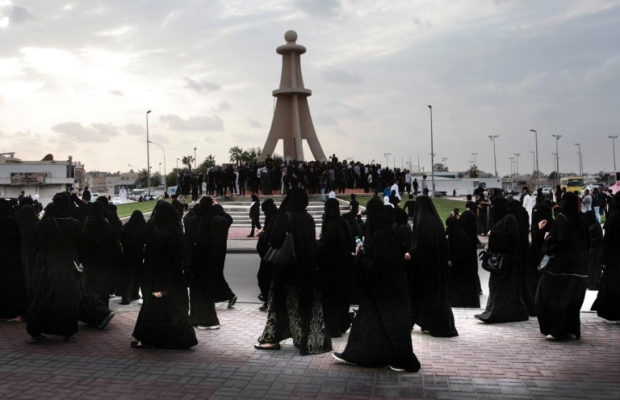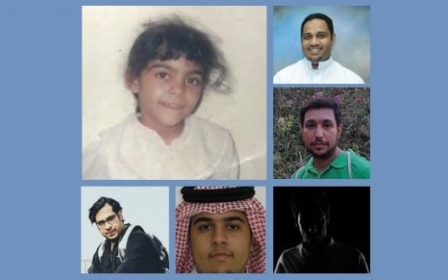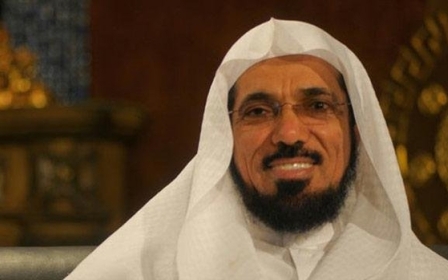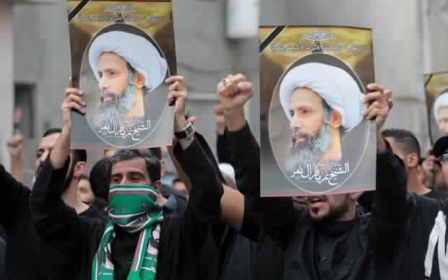First Saudi female activist on death row may face final court ruling within days
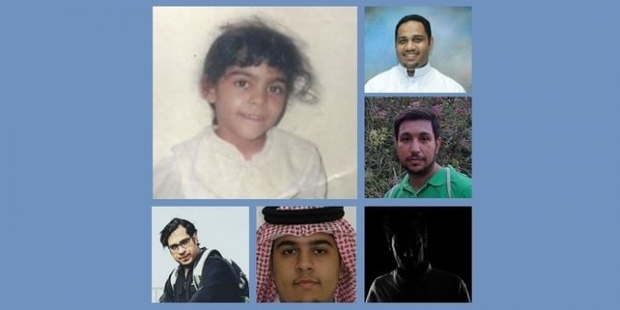
Saudi human rights defender Israa al-Ghomgham is due to appear in court this Sunday after being sentenced to death in a secretive trial last August, according to Saudi activists informed about her case.
Ghomgham, 29, is reportedly the first female human rights activist to be sentenced to death in a Saudi crackdown that has only worsened since Mohammed bin Salman (MBS) became crown prince and heir to the throne last year.
'Every day, the Saudi monarchy’s unrestrained despotism makes it harder for its public relations teams to spin the fairy tale of ‘reform’ to allies and international business'
- Sarah Leah Whitson, Middle East director at Human Rights Watch
During Sunday's session, the judge may either confirm or drop the death penalty recommendation issued by the Saudi public prosecutor in August.
Beheadings usually take place in Saudi Arabia after the decision is ratified by the king, in this case, King Salman bin Abdulaziz.
What may be Ghomgham's final hearing comes as Saudi Arabia's human rights practices are under heavy scrutiny following the killing of journalist Jamal Khashoggi at the Saudi consulate in Istanbul on 2 October.
While MBS has projected himself as a reformer, lifting a long-standing ban on female drivers, opening cinemas for the first time and attempting to ween the kingdom off its reliance on oil, the changes have come with a clamping down on critical voices.
Hundreds of executives, former government officials, religious leaders and activists, including the women who first pushed for the driving ban to be lifted, have been imprisoned.
While the arrests of the businessmen and former officials, held at the Ritz-Carlton hotel, were portrayed as an anti-corruption drive, critics say the detentions all serve to snuff out voices critical of the young crown prince.
Targeted over protests
Ghomgham is believed to have been targeted as a result of her leading role in the anti-government protests that have erupted in the Qatif region since 2011, demanding an end to discrimination against the Shia minority in the country and the release of political prisoners.
Muslims belonging to the Shia sect – who make up nearly 10 percent of the population - have historically suffered marginalisation in the Sunni-majority gulf Kingdom.
The targeting of the Shia community in Saudi Arabia has escalated in recent years, with a surge in death sentences primarily targeting Shia political activists. The majority of political prisoners currently on death row are Shia, while most of executions carried out in 2018 targeted Shia activists, according to rights groups.
According to the latest tally by the European Saudi Organisation for Human Rights (ESOHR), 93 people were executed in 2018 alone on political and drug-related charges. At least 62 prisoners are currently facing the death penalty, including eight minors.
Ghomgham has been detained for nearly three years in al-Mabahith prison in Dammam, the capital of Saudi Arabia's Eastern Province, inhabited mostly by the Shia minority. The charges brought against Ghomgham are all mostly linked to her non-violent participation in protests and their documentation on social media.
He said he was hoping international criticism of the kingdom over Ghomgham's case, and most recently the Khashoggi murder, would prevent a possible execution.
However, he said Mohammed bin Salman's interview with Bloomberg, in which he defended his crackdown against women activists, indicated that "he convicted them prior to any court verdict".
"Any execution is appalling, but seeking the death penalty for activists like Israa al-Ghomgham, who are not even accused of violent behaviour, is monstrous," said Sarah Leah Whitson, Middle East director at Human Rights Watch.
"Every day, the Saudi monarchy's unrestrained despotism makes it harder for its public relations teams to spin the fairy tale of 'reform' to allies and international business."
'Politically motivated'
The trial of Ghomgham and six others, including her husband Moussa al-Hashim, has been decried by Amnesty International as "politically motivated" and aimed to silence dissent.
Ghomgham's trial has been held at the Specialised Criminal Court (SCC) - established in 2008 to try terrorism cases. But rights groups have repeatedly called for its abolition, saying it is increasingly used to prosecute peaceful activists, and that its proceedings usually violate the right to fair trials.
The same court witnessed the sentencing of prominent Sunni clerics to death in September, including Salman el-Odah, Ali al-Omari and Awad al-Qarni.
The SCC has also been used in trials against activists and leading clerics belonging to the Shia minority who were later executed in 2017.
Earlier in October, a panel of UN experts expressed "acute concern" for Ghomgham, saying the charges against her "lack legal bases" and that she was being denied the right to legal representation.
The office of the UN High Commissioner for Human Rights told MEE it was currently in touch with Saudi authorities regarding Ghomgham's case, but that communications between them would "remain confidential for 60 days once they have been sent".
New MEE newsletter: Jerusalem Dispatch
Sign up to get the latest insights and analysis on Israel-Palestine, alongside Turkey Unpacked and other MEE newsletters
Middle East Eye delivers independent and unrivalled coverage and analysis of the Middle East, North Africa and beyond. To learn more about republishing this content and the associated fees, please fill out this form. More about MEE can be found here.


